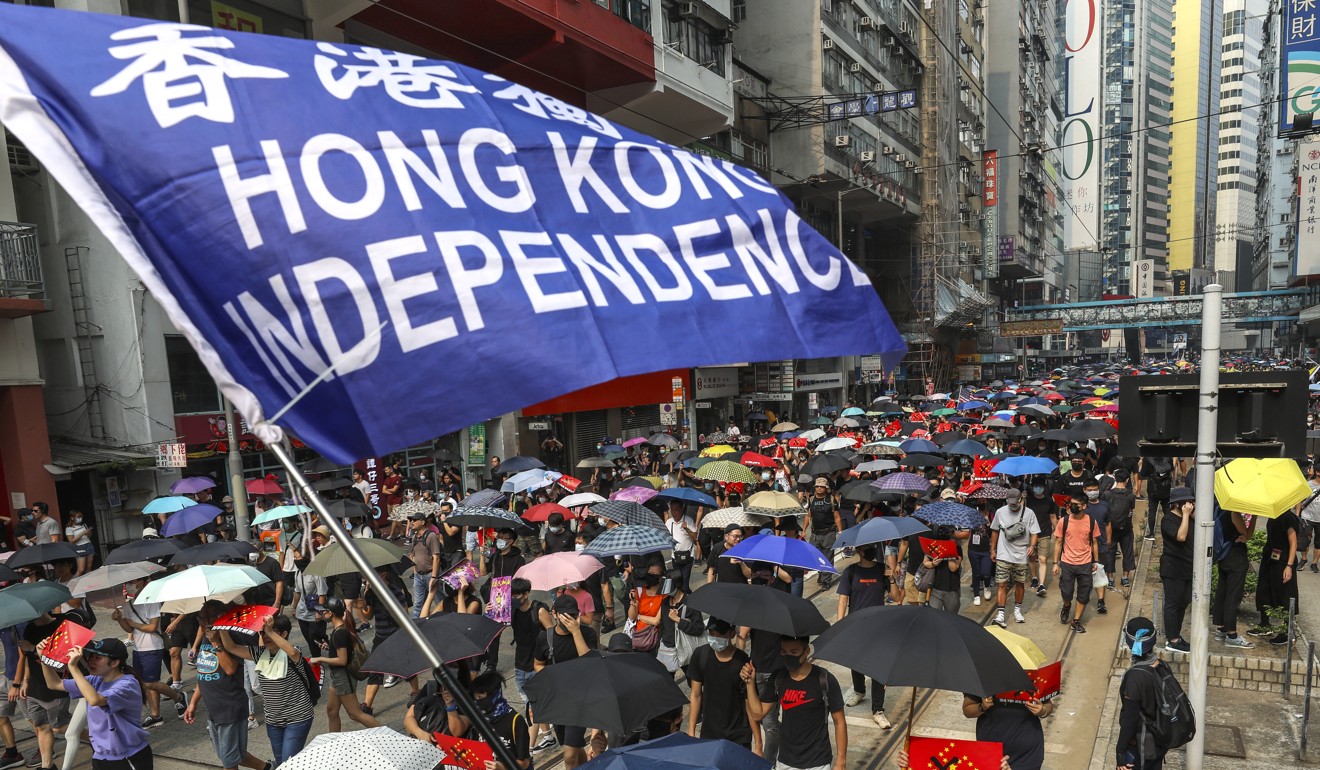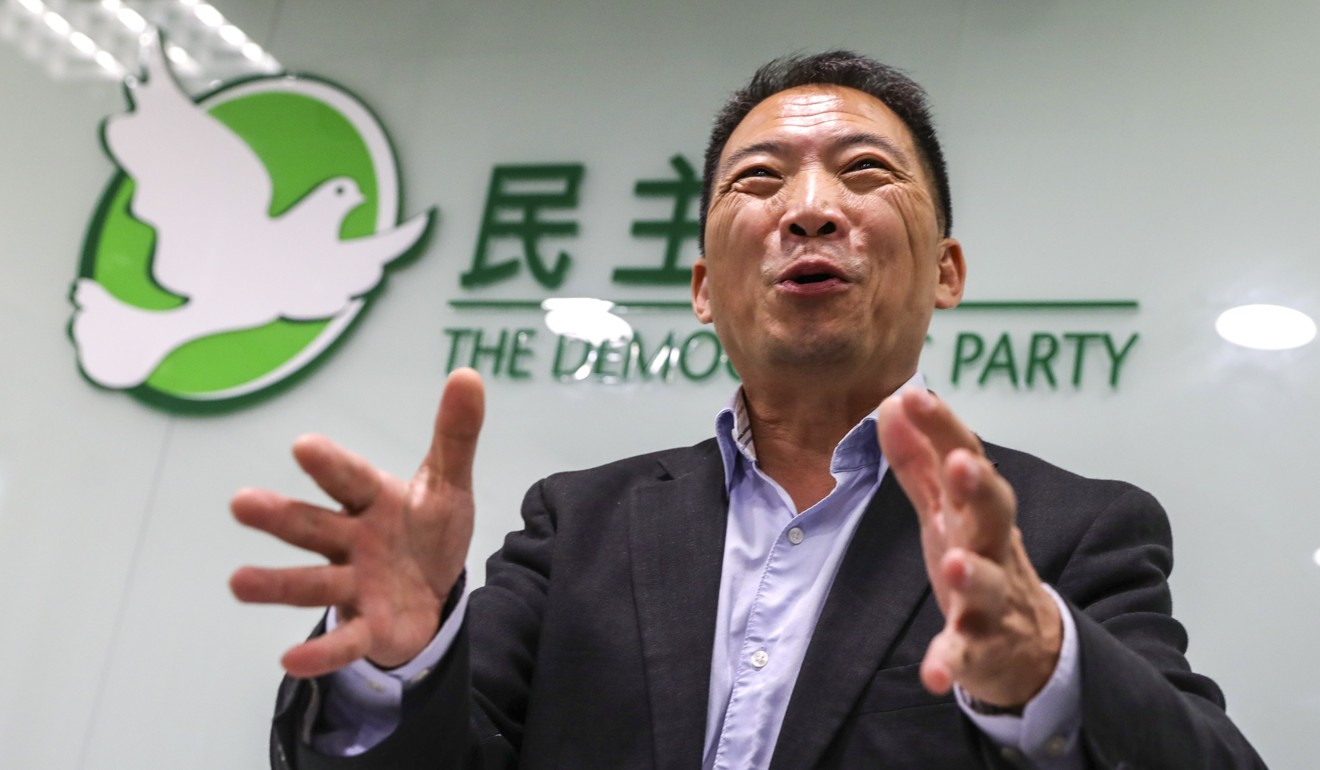Hong Kong voted for democracy. Now protesters and victorious political parties must showcase its strengths
- From the High Court ruling on the mask ban to the district council election results, recent weeks have highlighted the power of democratic institutions
- New councillors must be ambassadors of democracy in action while pro-democracy parties should draft policies that show they can be more than an opposition force

In the past few weeks, Hong Kong has witnessed the triumph of democratic institutions. The High Court declared the anti-mask legislation unconstitutional. The district council elections witnessed the overwhelming victory of pro-democracy candidates. In the United States, both the legislative and executive branches of government endorsed a law designed to support Hong Kong’s freedoms. Democratic institutions work, and this is an important lesson in the current climate.
Some may argue that the only reason democratic institutions worked was because of the threats posed by violent street protests. Yet there is little evidence to support this assertion. Hong Kong’s judiciary is independent of both the government and civil society. It is concerned with the law and its meaning.
It is difficult to know the minds of millions of voters in the district council elections. Yet, it seems clear that many older Hongkongers tolerate the violence even though they may disagree with it. There is extraordinary support for young Hongkongers who are the inheritors of a post-2047 Hong Kong. This is a more likely reason for such strong electoral support.
As for the US, it seems clear that all US politicians saw was a constant parade of videos showing police throwing tear gas and beating protesters. Violence can claim few supporters, apart from a small group of protesters themselves.
While victories can be claimed, they are not the same for all protesters. Peaceful protesters with pro-democracy aspirations will have been glad to see these institutional developments. They attest to the way democracy works for people, even in times of stress.
Yet, such victories do little for those who support independence from China. Theirs is a larger battle that cannot be won by institutional reform. They seek a new sovereignty for Hong Kong. Yet these different strands exist together, united by the populist slogan “Stand with Hong Kong”. Their purposes, however, are different.
For most pro-democracy supporters, a democratic polity in Hong Kong but within China and within the framework of the Basic Law will work. This is not so for the pro-independence supporters whose aims, ideas and manifestos are well known. They want complete separation from China and the only value they see is in continuing chaos.

Yet, democratic institutions now have the runs on the board – they deliver for people and for Hong Kong. Pro-democracy protesters need to build on their victories and show how a democratic society can be built on its institutions and for its people.
There are a number of steps that must now be taken by protesters to consolidate their victories and move to the next level.
First, new democratic district council members must show their constituents that democracy can work for them. Being elected is not about “taking revenge” – it is about showcasing democracy’s values. This may take some specific training for the new candidates who have sailed to victory on democracy’s coattails.
They must deal with issues in an open, fair and transparent way. They must generate a culture of democracy within their districts and show that it is designed to benefit people and address their needs. Training workshops are essential to build this culture.
Second, preparations must start for the 2020 Legislative Council election. This must be the next target. Candidates need to be selected and trained, policies need to be developed with people’s needs at their heart.
There is a much broader electorate to convince in this election, so candidates need to be credible, policies should be up front and voters must understand what they are endorsing when they vote for pro-democracy candidates.
Third, political parties of all kinds – but particularly the Democratic Party – must focus on large-scale, consultative policy formation so that voters are aware of the broad range of issues on which the parties stand. It is no longer sufficient to be just an opposition party that only takes a stand when objecting to anything put forward by the government.
Policies should be substantive, forward-looking and, for the Democratic Party at least, soundly democratic. Parties play an important role in democracies. While the political context is circumscribed in Hong Kong, there is no reason that parties cannot highlight their values and priorities in well-developed policies.

Building on the success of democratic institutions falls well within the political framework articulated in the Basic Law. The election of the chief executive is on the agenda as is the abolition of functional constituencies.
As China comes to understand that democracy is not necessarily inimical to the national interest then more can be done. It will be a slow process, as democratic development throughout time has been. Those in power have always had to be convinced that sharing their power benefits everyone.
Building a resilient democracy in Hong Kong will have undoubted benefits. Yet it will require political skill and trust on all sides. Above all, it requires an understanding that working together is the preferred way to build a democracy that can meet everyone’s needs.
Kerry Kennedy is professor emeritus and adviser (academic development) at The Education University of Hong Kong